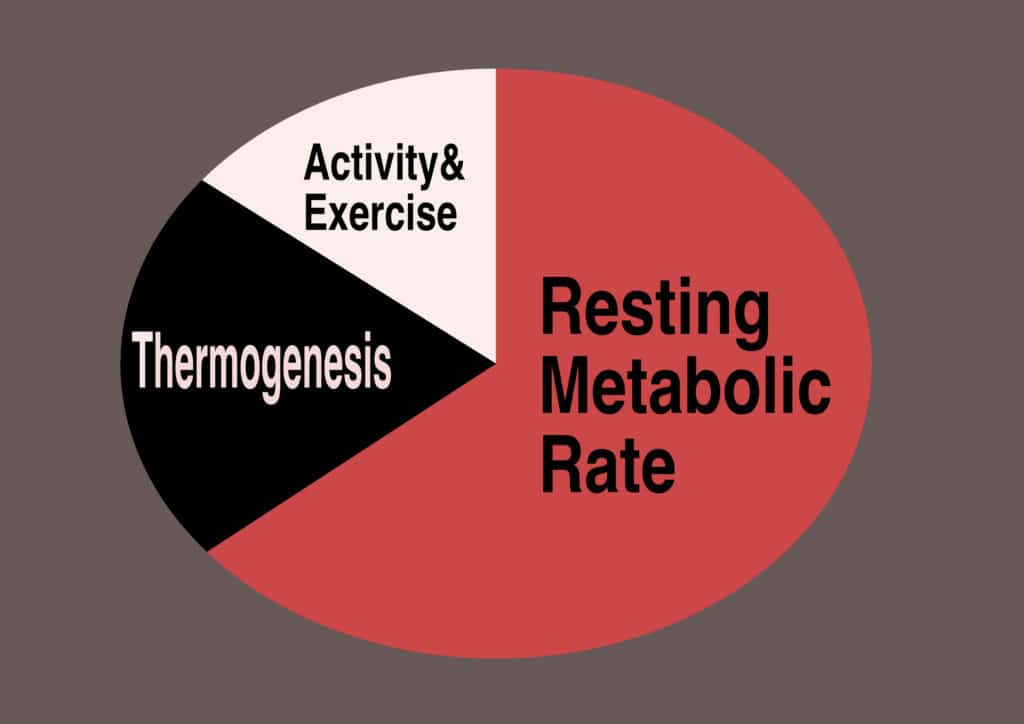Metabolism: Why Burning Calories isn’t the Answer
Why would I spend time writing about your metabolism?
It’s just what we are born with isn’t it? If we have a slow metabolism there’s nothing we can about it is there?
The main three aspects that determine how many calories you will burn today are:
Your levels of activity and exercise- This is probably the most obvious part. Everything here counts, walking, standing, gym, sport and even…fidgeting.
Thermogenesis- when we eat our body goes through a chain of chemical reactions that give off heat as a bi-product which is the lost. Certain foods have a higher amount of thermogenesis like fibrous vegetables and protein.
Resting metabolic rate- The amount of energy your body needs to maintain itself.
This article is mostly going to cover your resting metabolic rate.
The key thing I want you to understand is your metabolism is an active and moving entity that is trying to maintain your body in homeostasis right now.
What can you do to increase you metabolism?
The four biggest determents for your metabolic rate are:
Your body mass – bigger people have a greater amount of muscle, this is true even in obese people with a higher degree of fat mass
Your body composition- what your body is made up of i.e how much muscle, fat, water and bone you have. people with higher muscle mass have a higher resting metabolic rate.
Your age – It’s typical that metabolism slows by roughly 3% per decade due to a decline in muscle
Your gender – Men tend to have a higher metabolism which again is down to having a greater muscle mass
Do you notice the theme?
Muscle, Muscle, Muscle!
If you want to increase your metabolism in order to either lose weight or stay lean without having to be on desperately low calorie diets for the rest of your life, you need to focus on lifting up the % of your body that is muscle or at least maintaining the muscle you have.
Are we asking the right questions?
Everywhere you look faddy fitness trends boast how many calories their type of exercise will burn.
This type of marketing relies on the publics misunderstanding that burning calories alone is the answer to their long term body fat loss goals.
Aerobic exercise doesn’t appear to to have any long term impacts on resting metabolism although aerobic exercise will increase total energy expenditure for the day; it just won’t lead to any long term changes in metabolic rate.
Strength training however, can lead to a long term increase in metabolism because of the associated increase in muscle mass.
So aerobic exercise is a useful tool in losing body fat but if you want to keep it off include some strength training in your program.
Is your diet successfully ruining your metabolism?
Two things that can lower your metabolism are.
Weight loss- doesn’t seem fair does it? You lose weight but then your body throws this spanner in the works! The good news is, if you maintain your muscle as you drop body fat any changes in your metabolic rate will be minimal.
Low calorie diets- Dropping your calorie intake to levels below 15% under your resting metabolic rate can rapidly lower your metabolism.
When you work with a coach and they tell you not to just drop the amount of energy you eat straight away and burn as many calories as possible there is a good reason for it.
Your long term success and your ability to have a life whilst staying in shape relies on it!
Spence
Thanks for reading and if you’d like to work with us to get started on a program that will deliver both in the short term and in the long term, please use the form below.
Start Your Fitness Journey Today
Book your complimentary personal planning session now
You’ll receive:
✔ In depth posture and movement analysis
✔ Full breakdown of your training history
✔ Our opportunity to fully understand your lifestyle
✔ In depth discussion on your goals and motivation
✔ We’ll take your starting measurements (optional)
✔ Jointly we’ll create your training and nutrition roadmap
✔ We’ll find the best package for you, your budget and your goal
Please expect a response within 4 hours during our office hours of Monday to Friday between 9am- 5pm. Enquiries outside of this time can expect a response within 12 hours.
Get in touch


